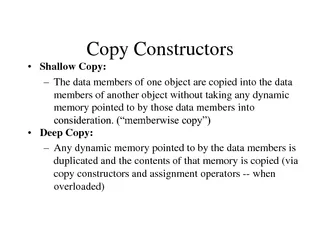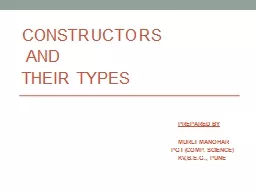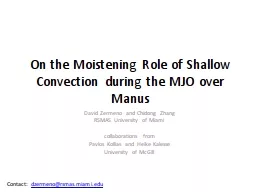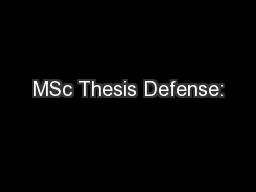PDF-Copy Constructors Shallow Copy The data members of one
Author : olivia-moreira | Published Date : 2015-05-20
Both of these member functions perform copy operations by performing a memberwise copy from one object to another In situations where pointers are not members of
Presentation Embed Code
Download Presentation
Download Presentation The PPT/PDF document "Copy Constructors Shallow Copy The data ..." is the property of its rightful owner. Permission is granted to download and print the materials on this website for personal, non-commercial use only, and to display it on your personal computer provided you do not modify the materials and that you retain all copyright notices contained in the materials. By downloading content from our website, you accept the terms of this agreement.
Copy Constructors Shallow Copy The data members of one: Transcript
Download Rules Of Document
"Copy Constructors Shallow Copy The data members of one"The content belongs to its owner. You may download and print it for personal use, without modification, and keep all copyright notices. By downloading, you agree to these terms.
Related Documents














